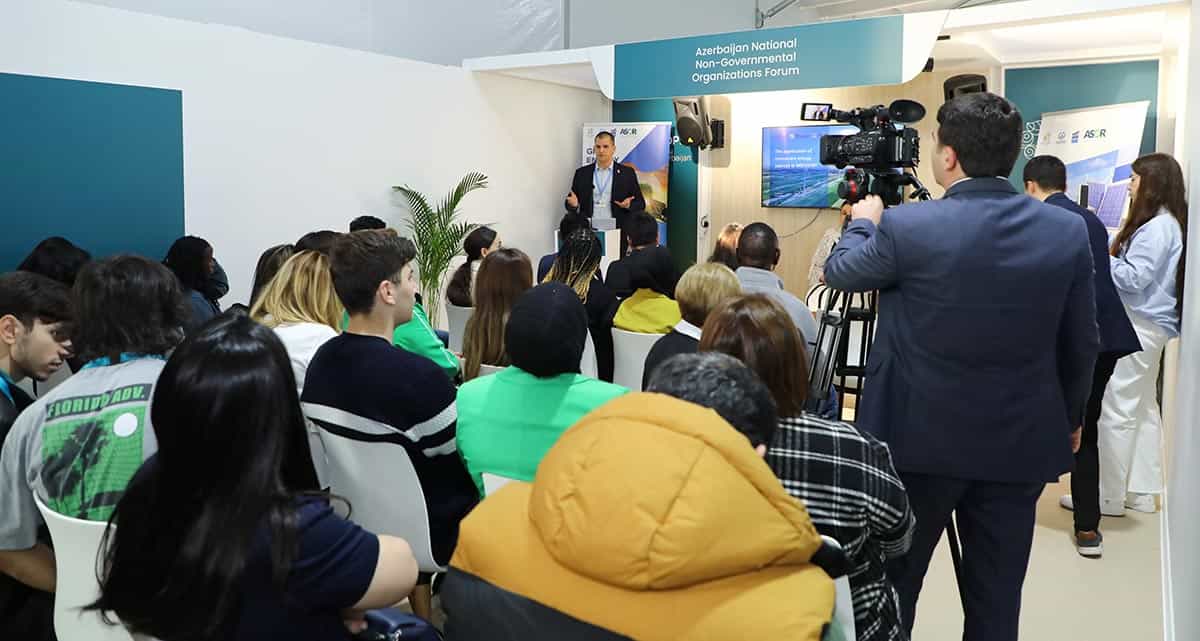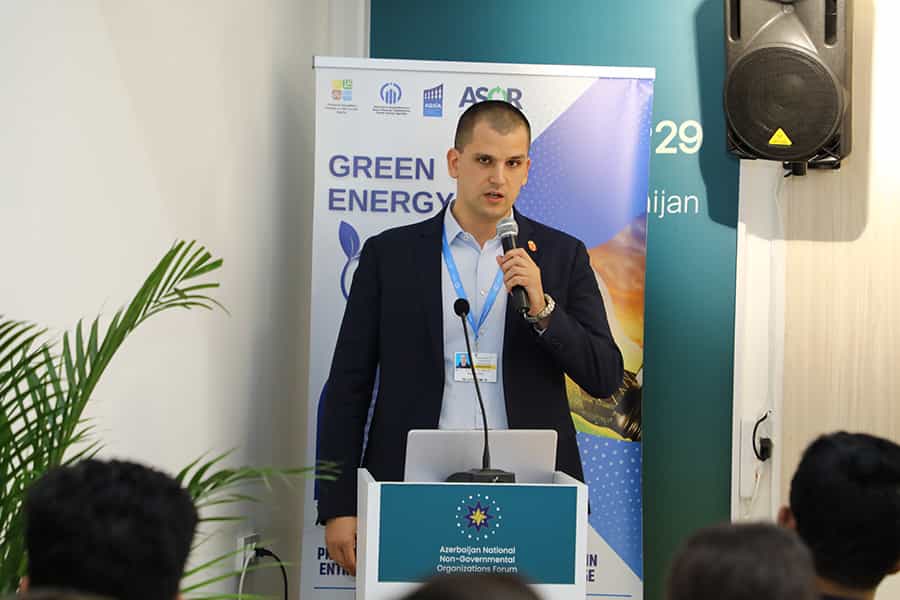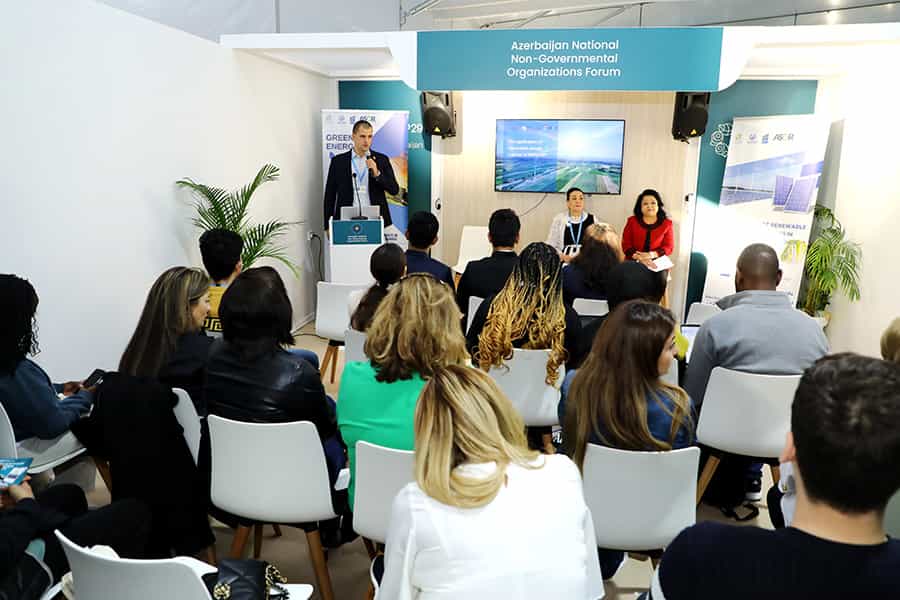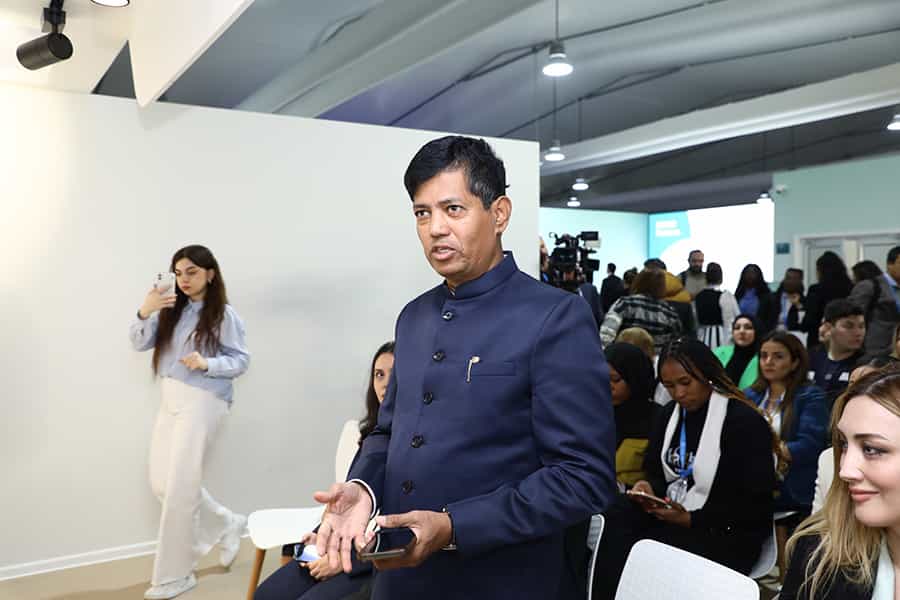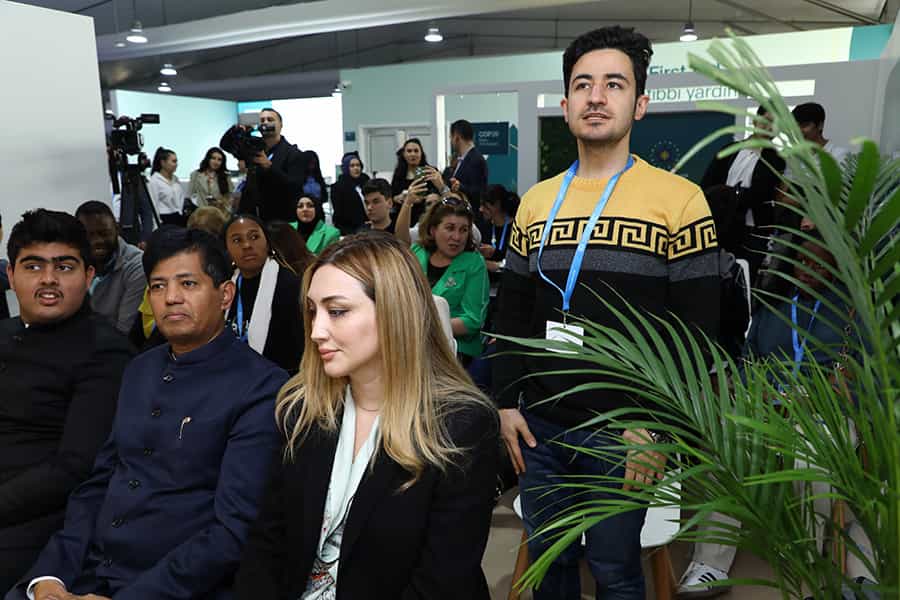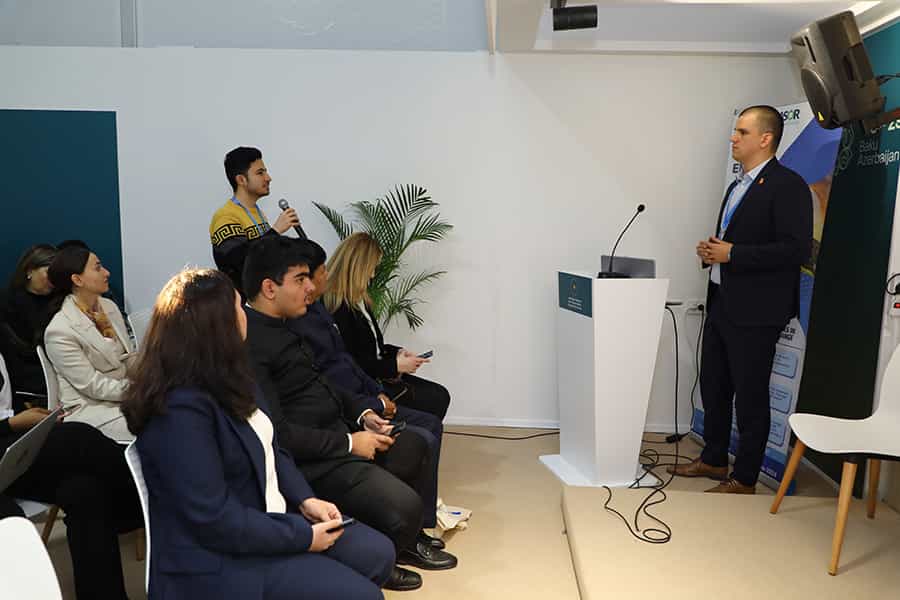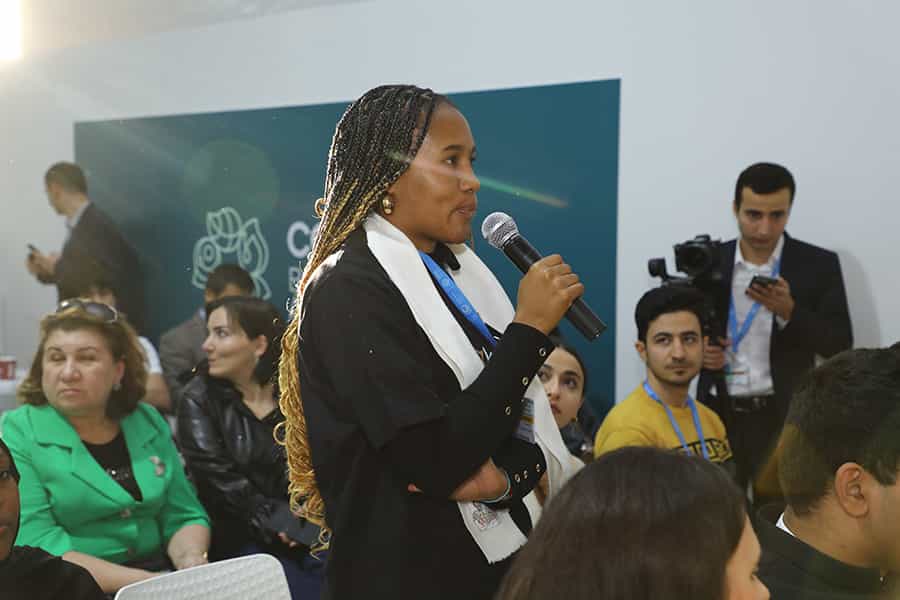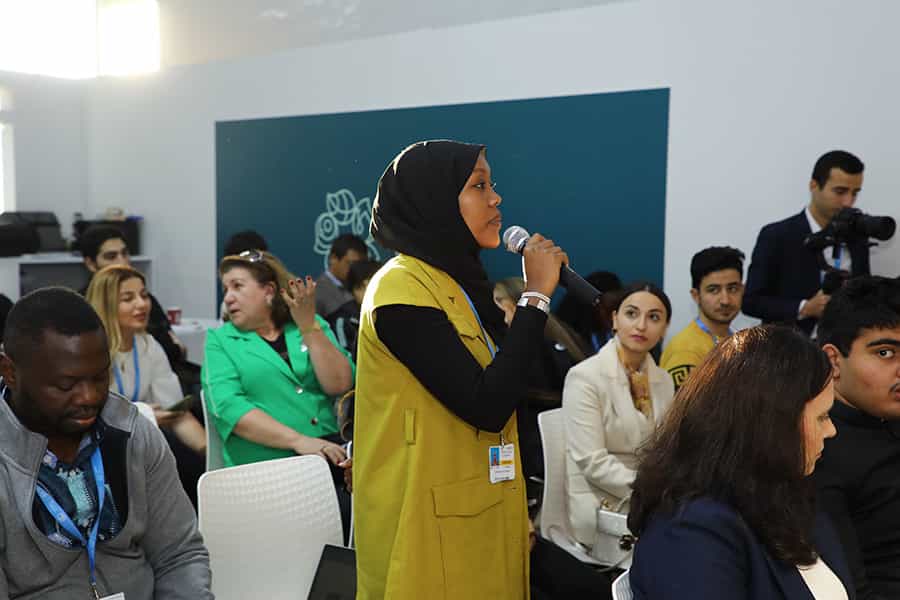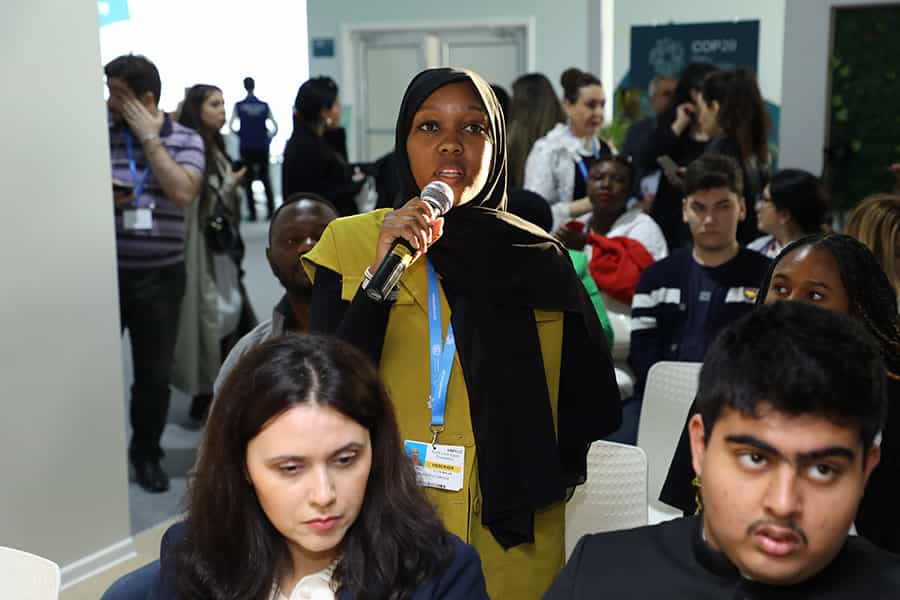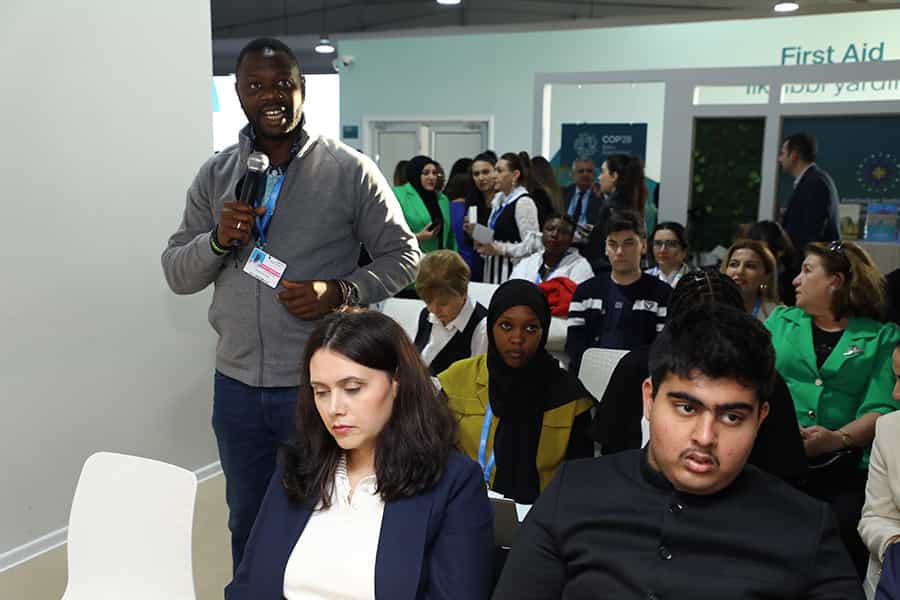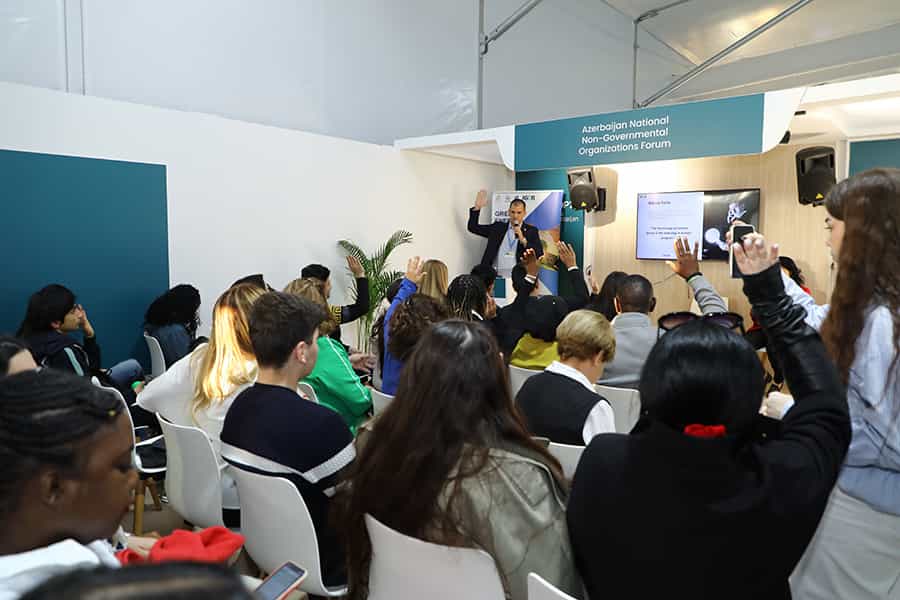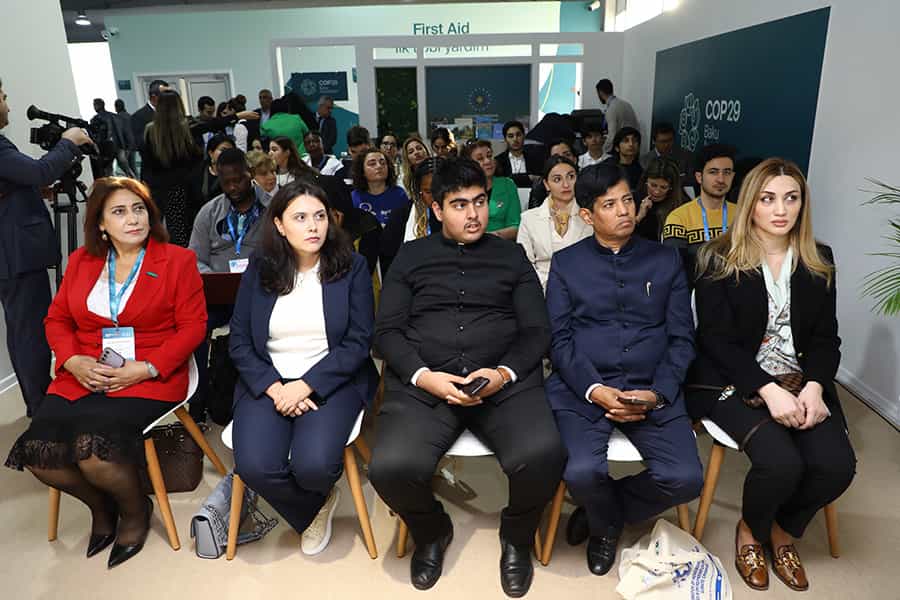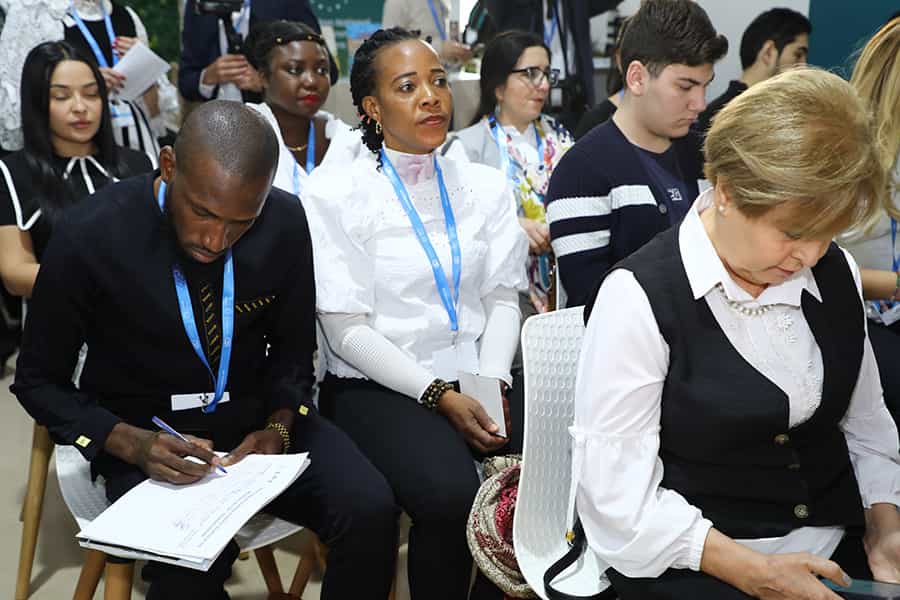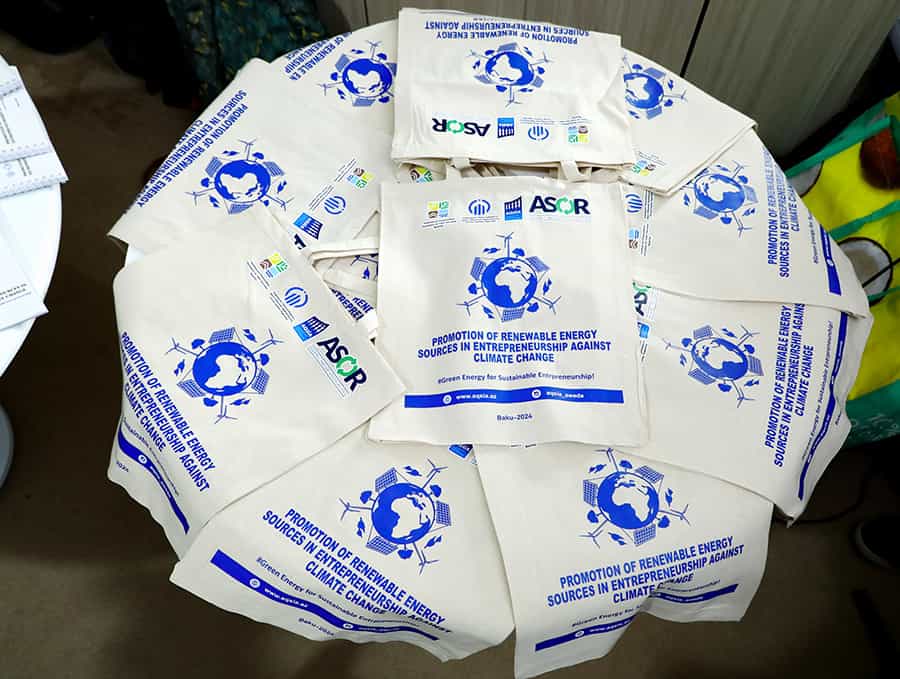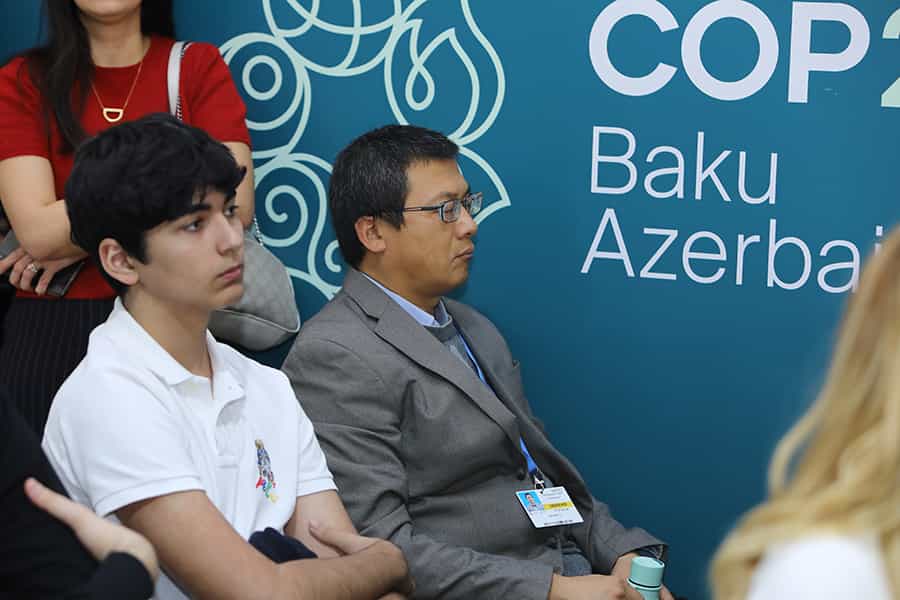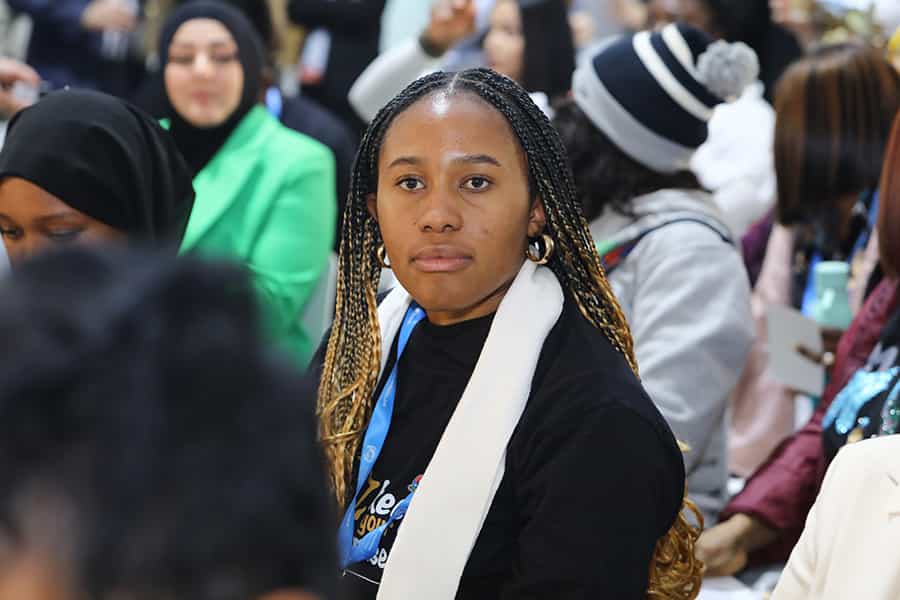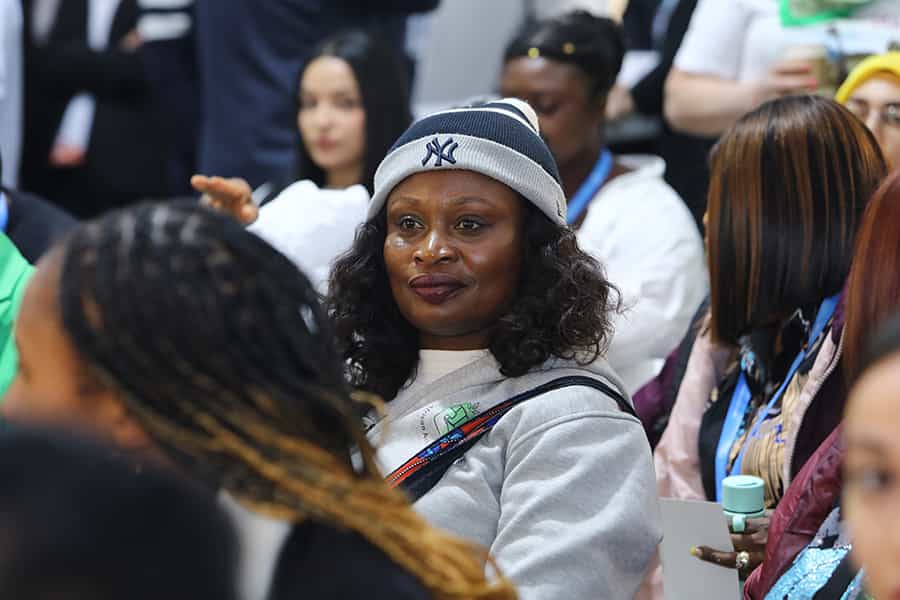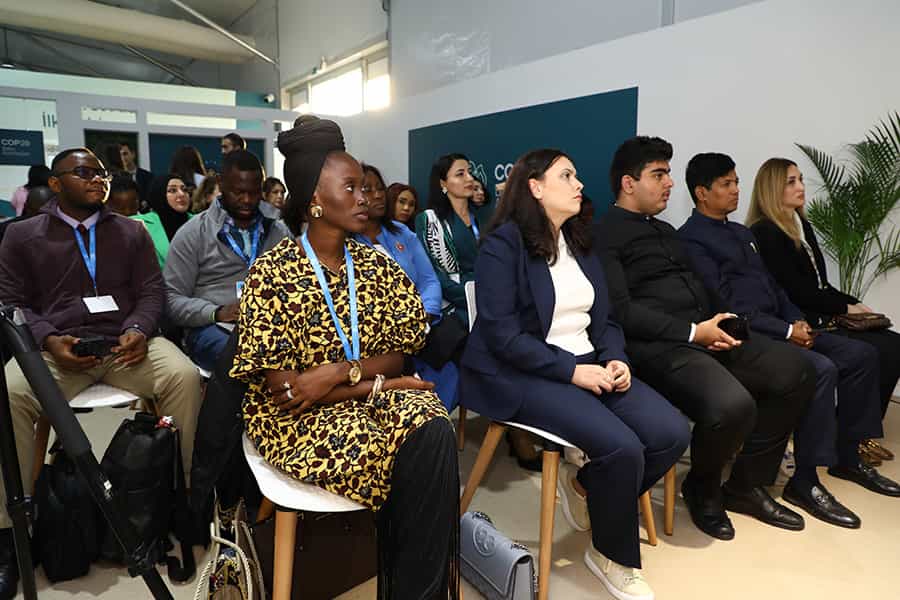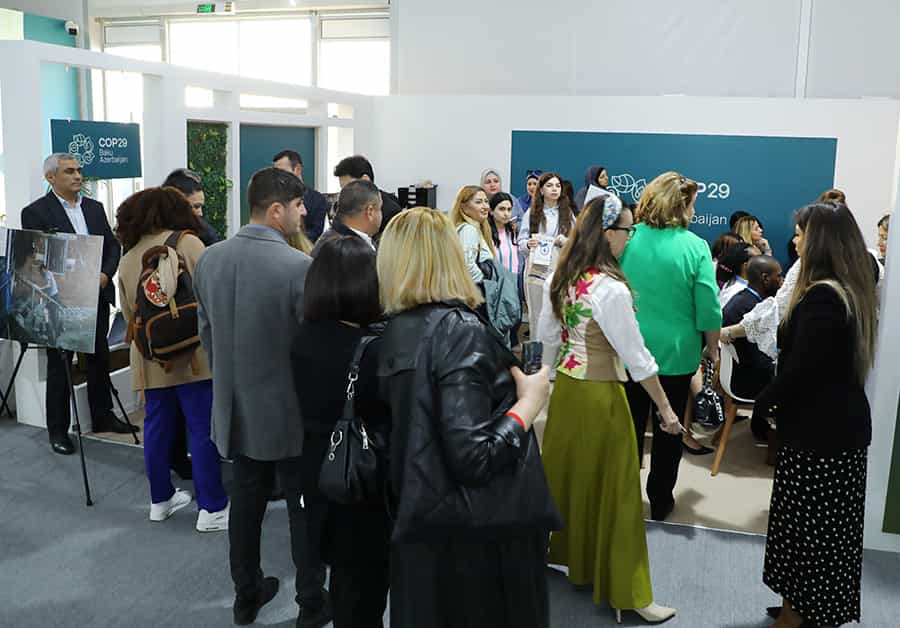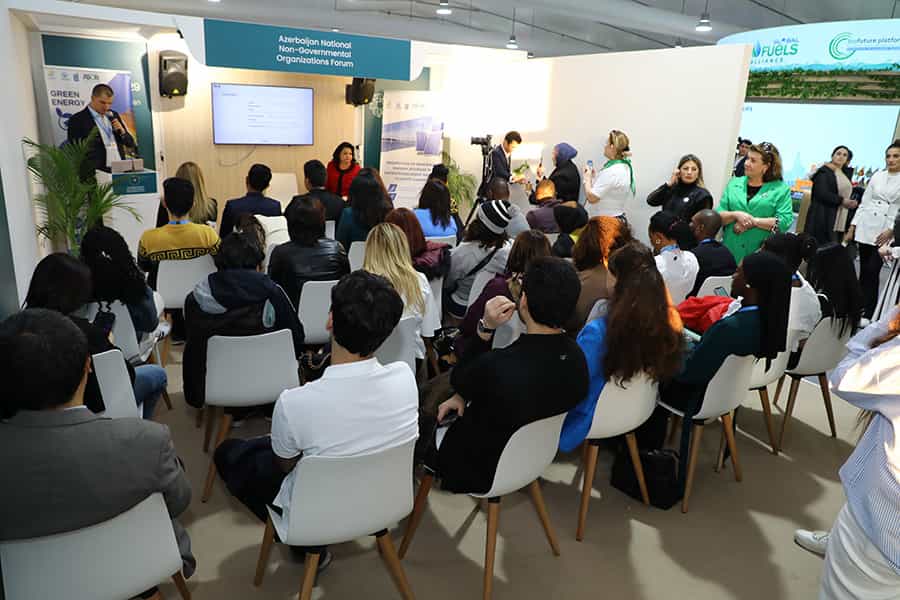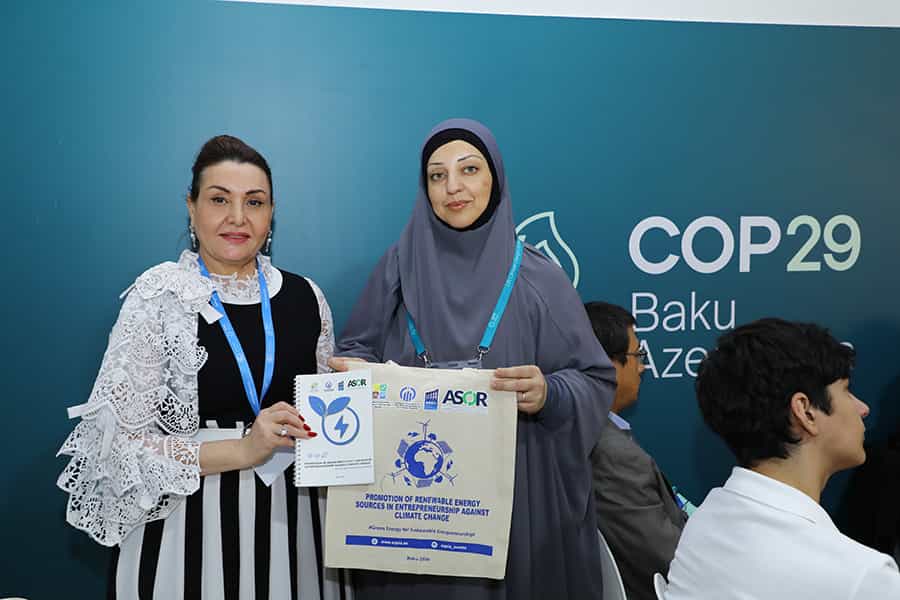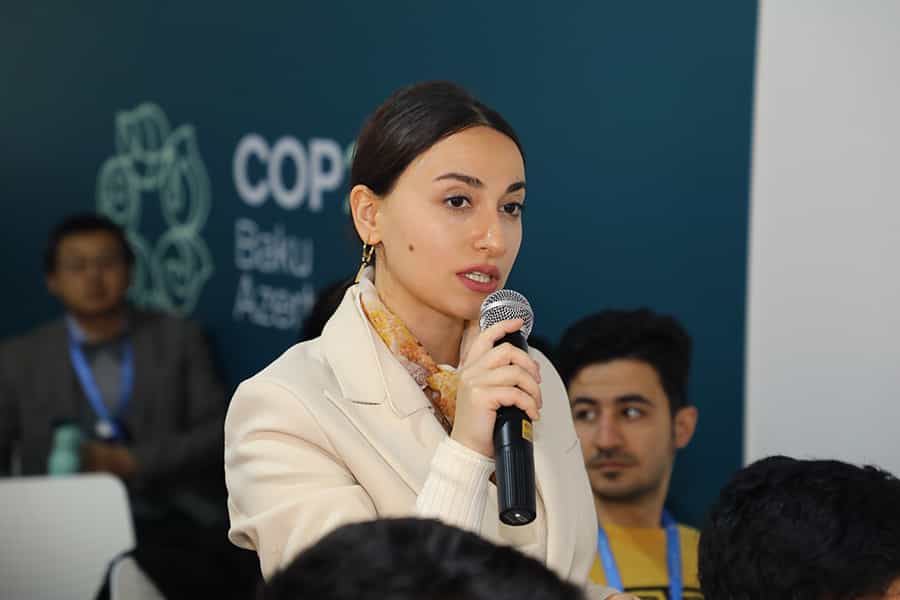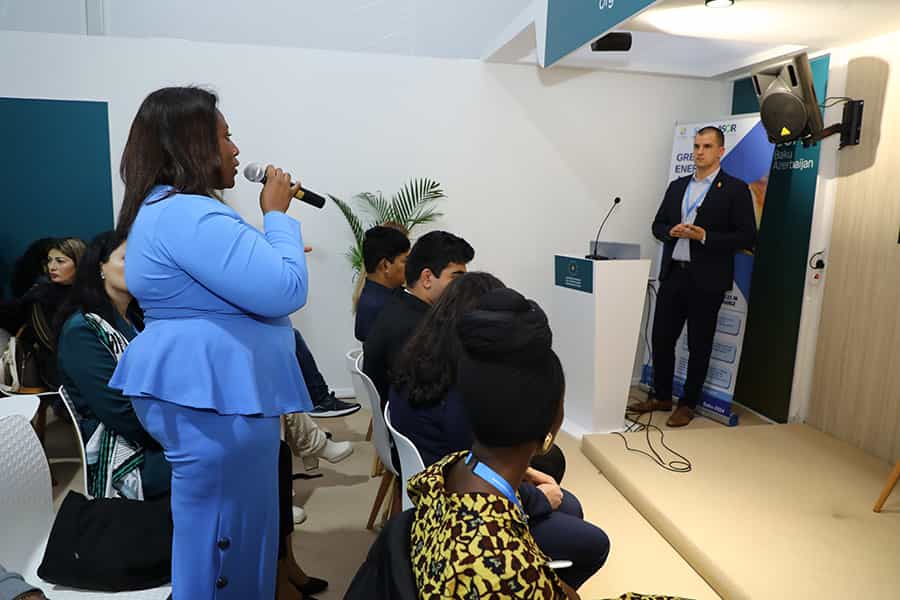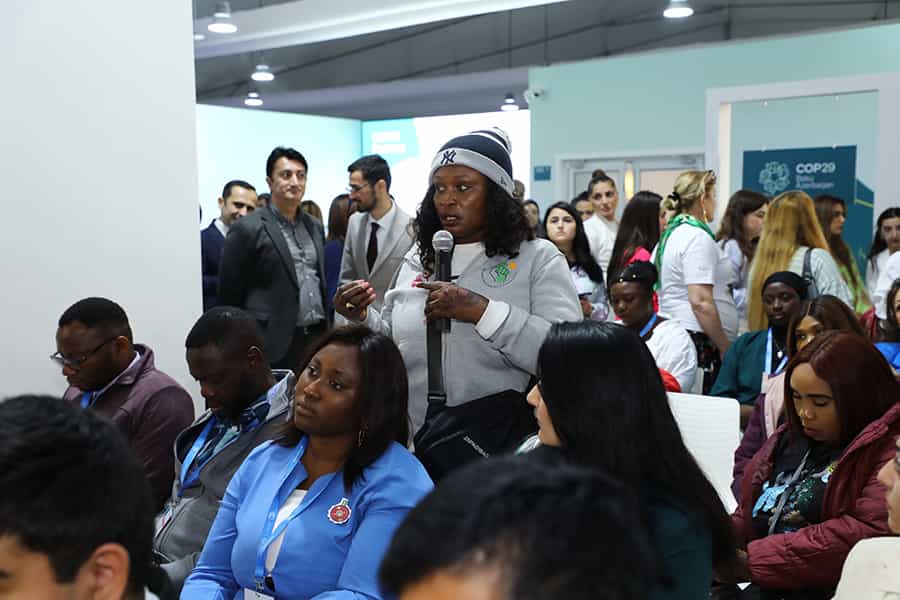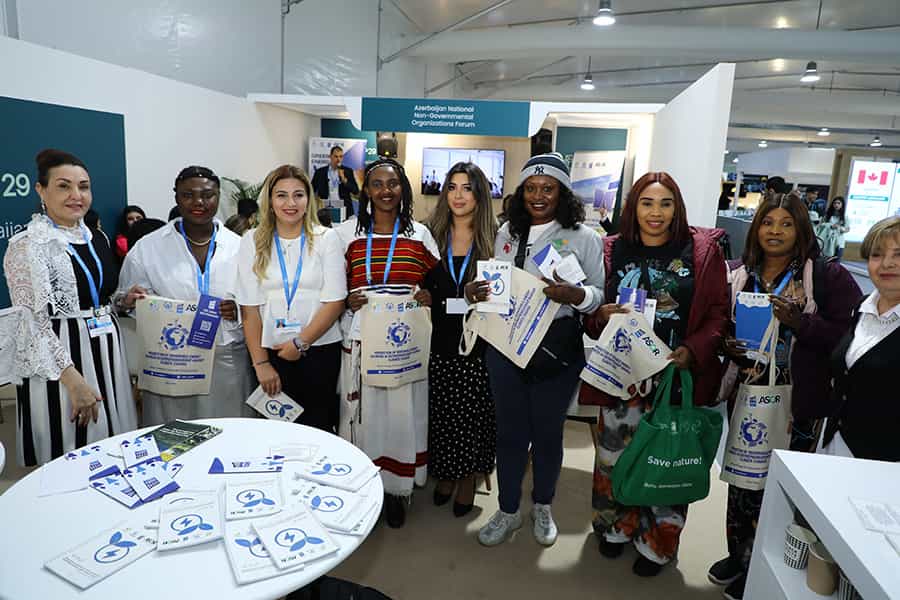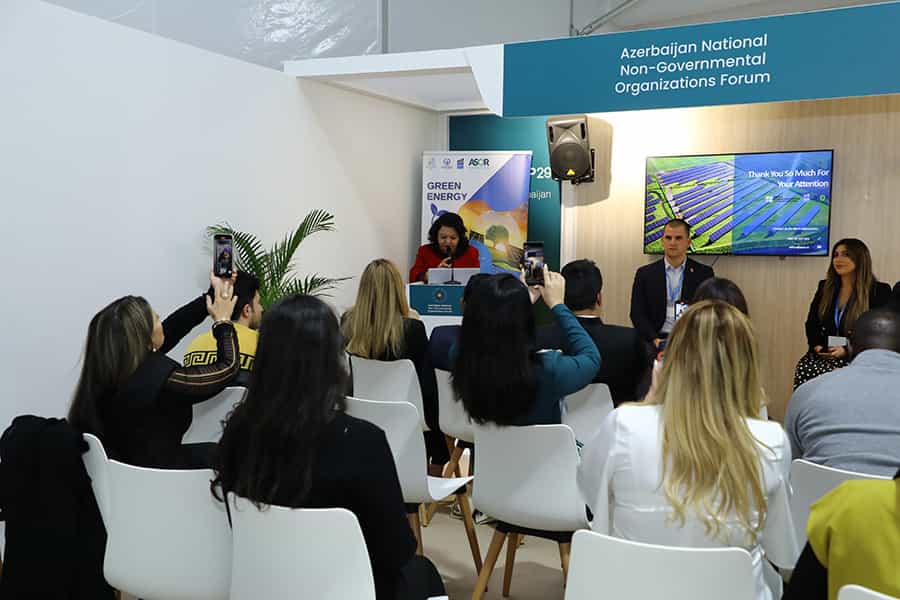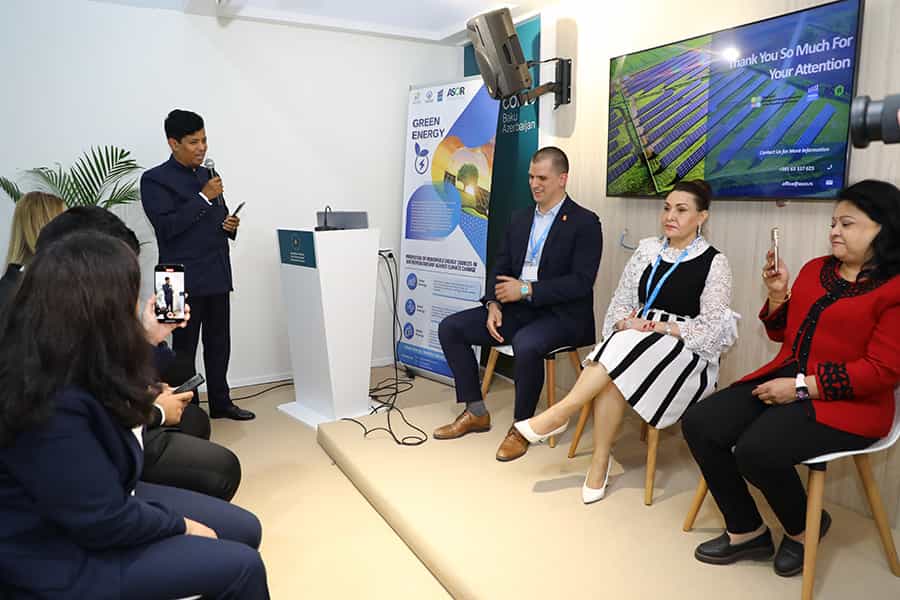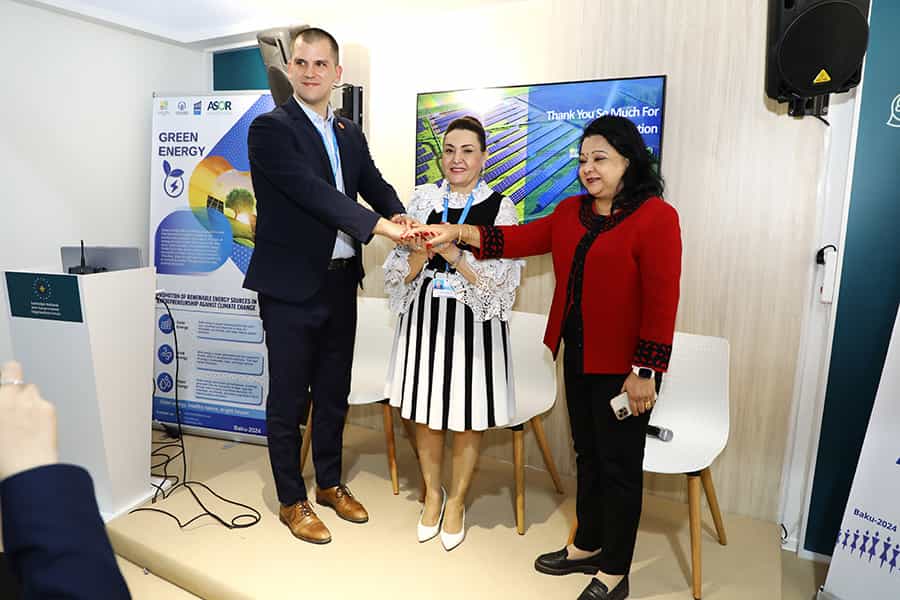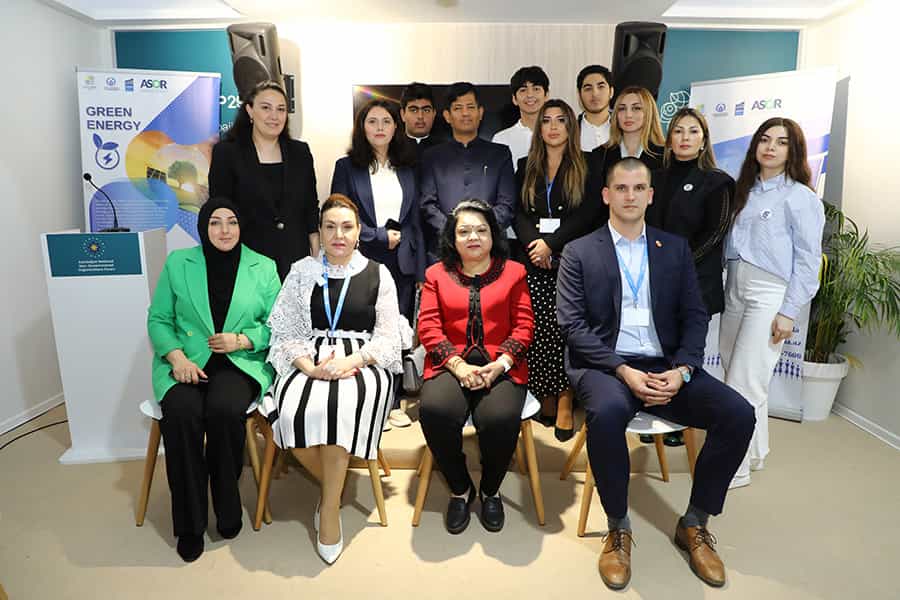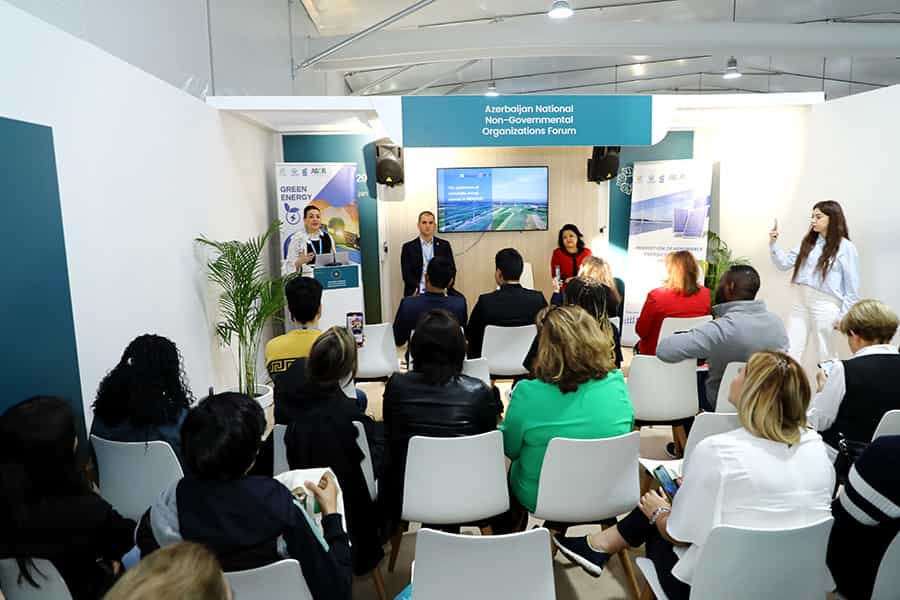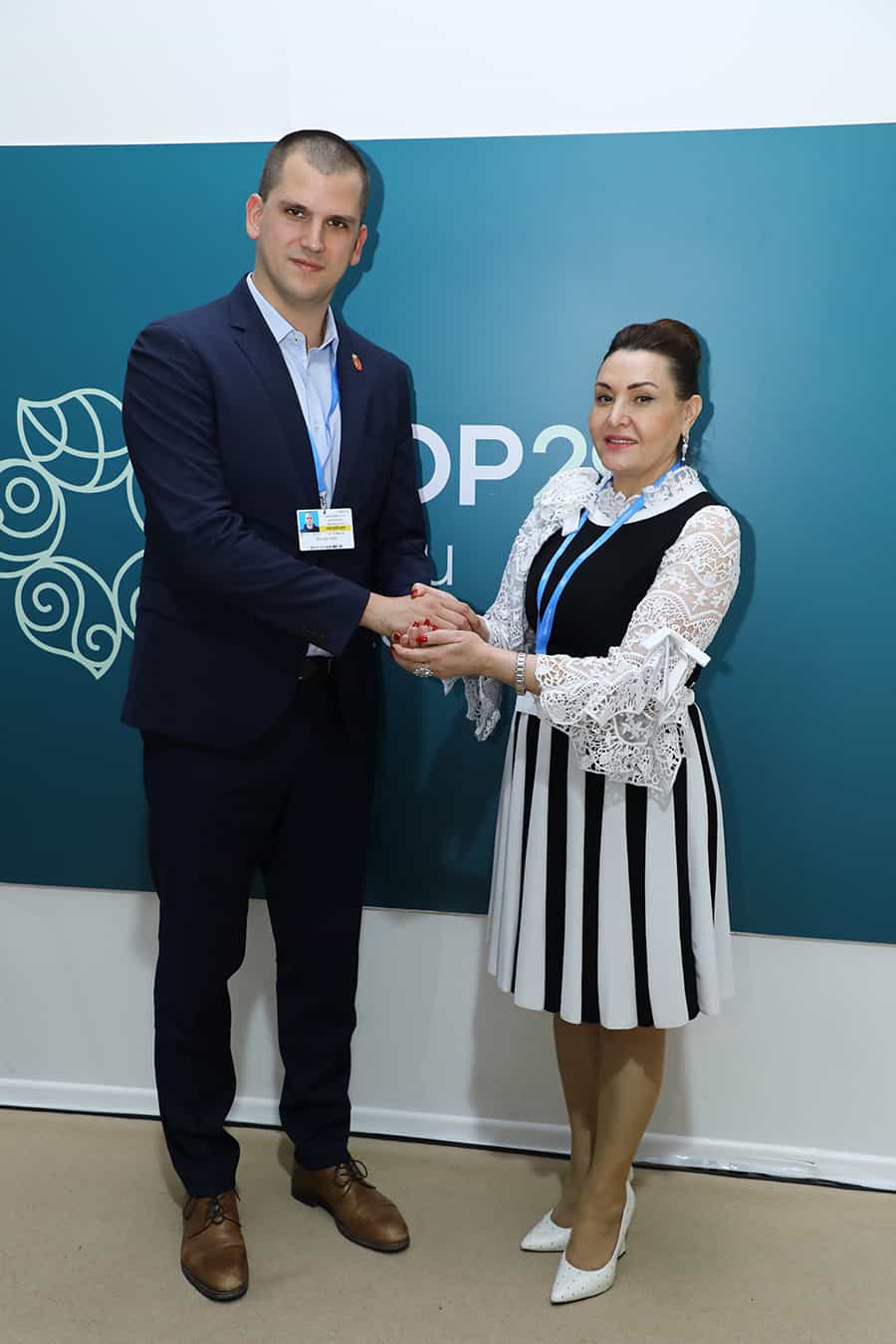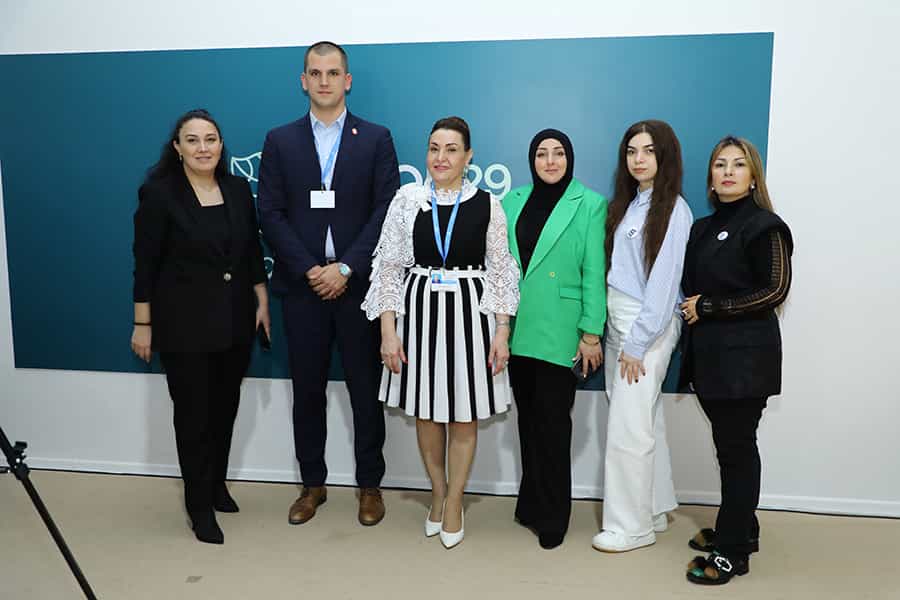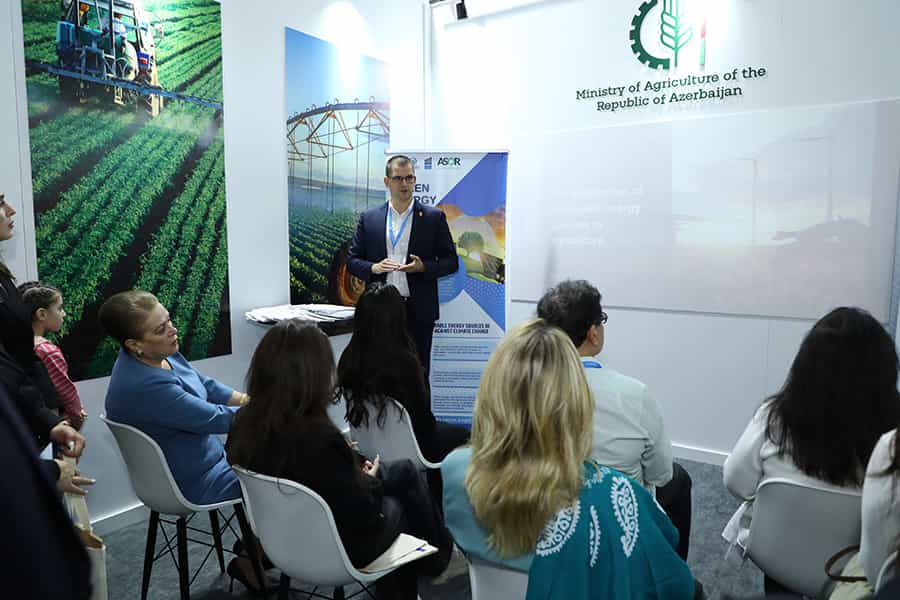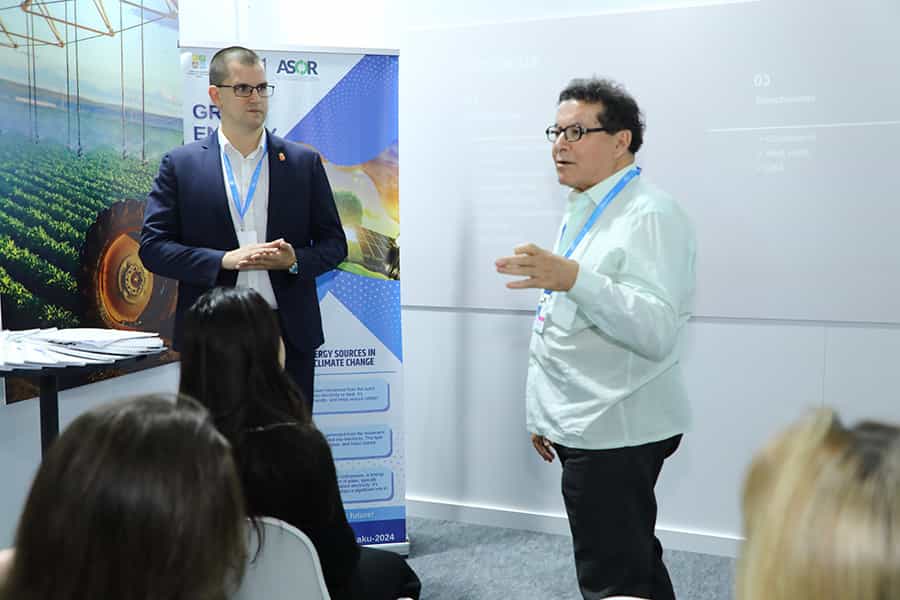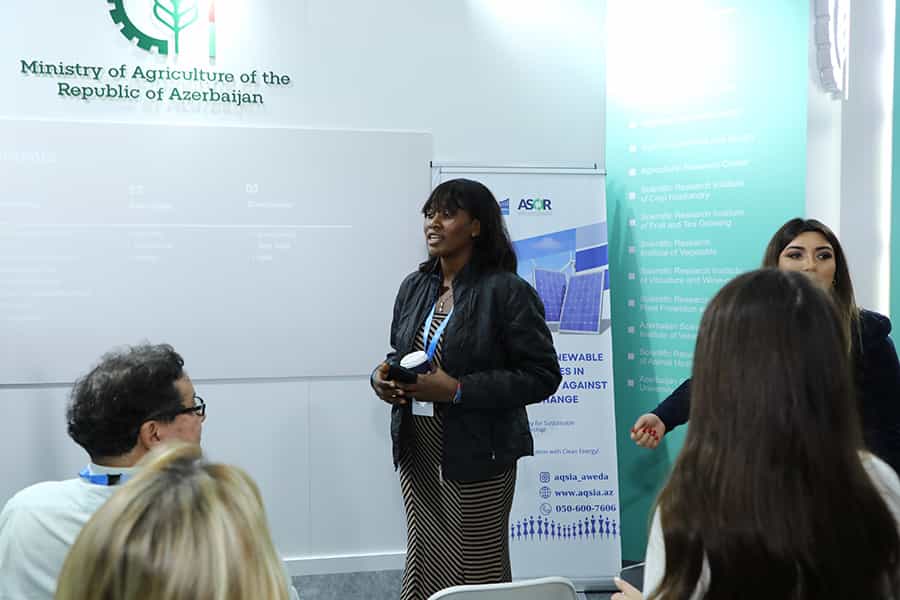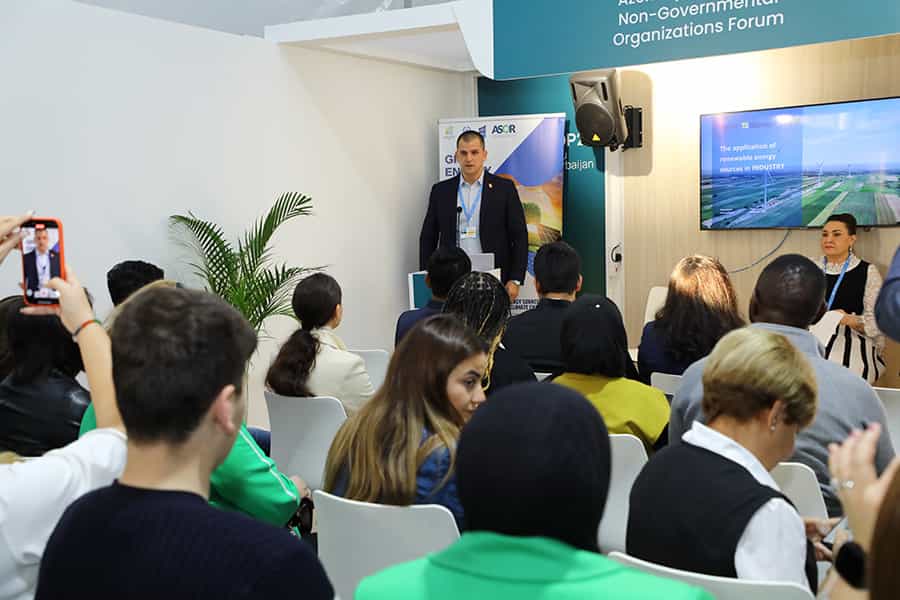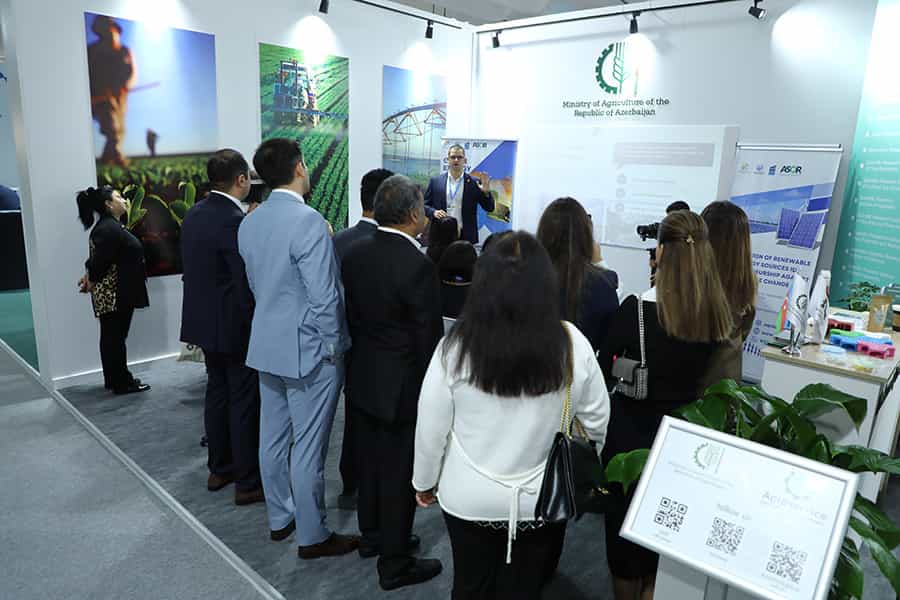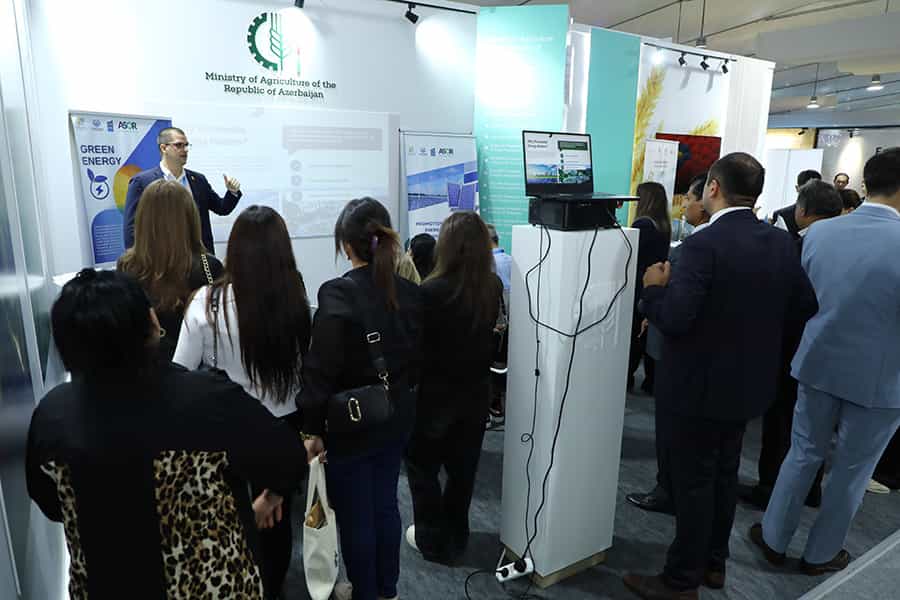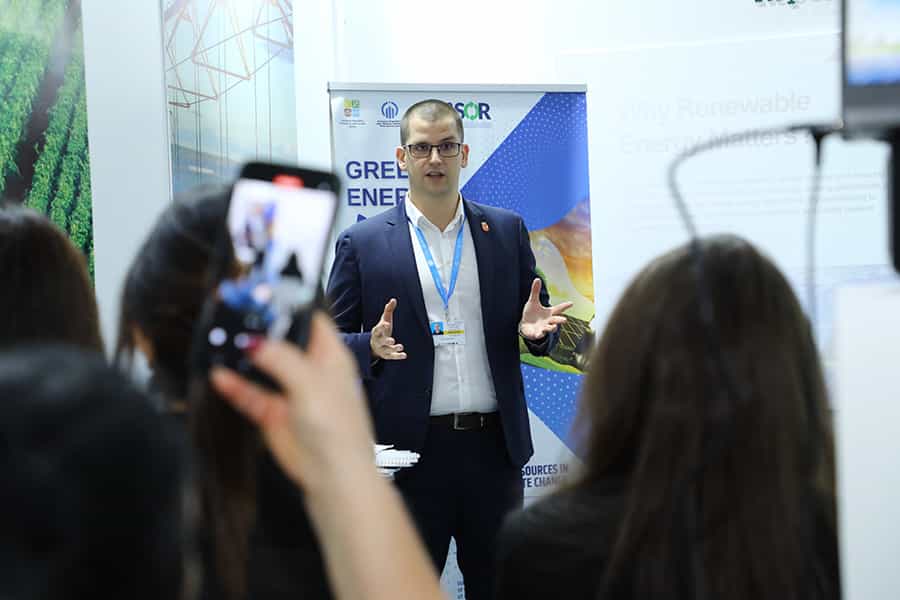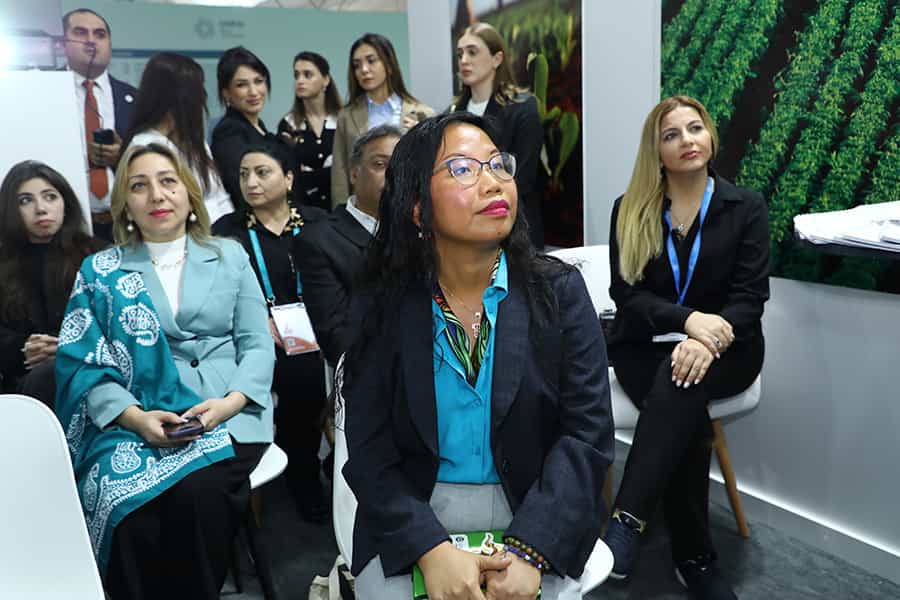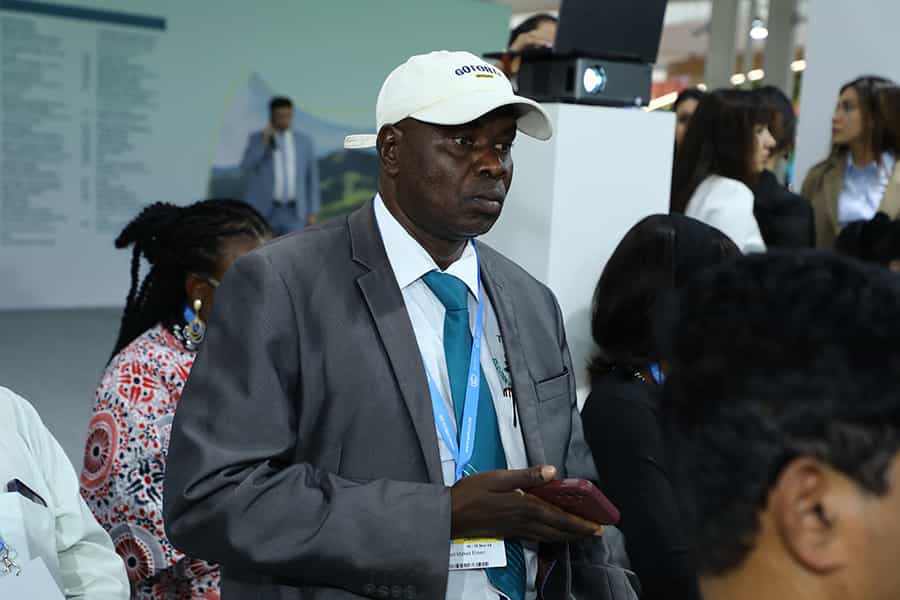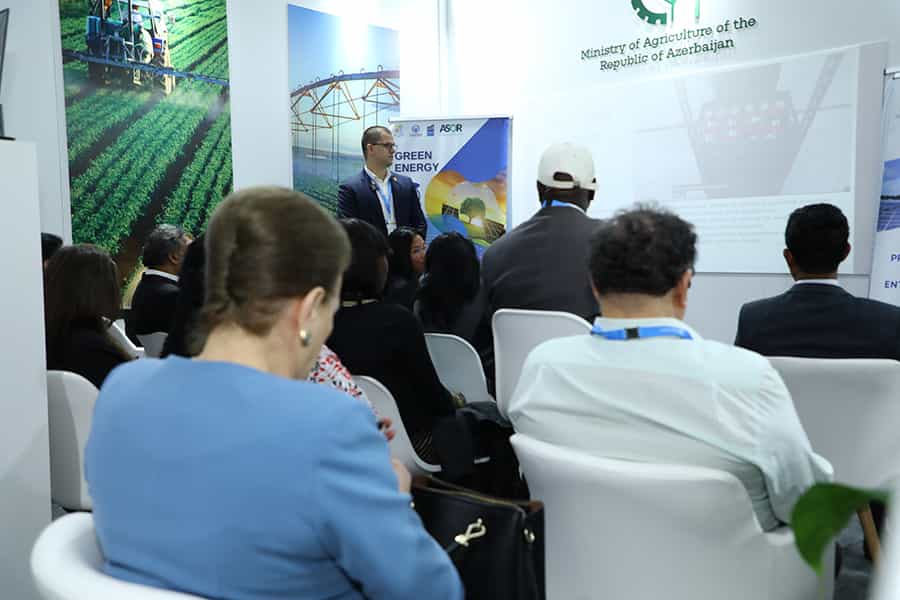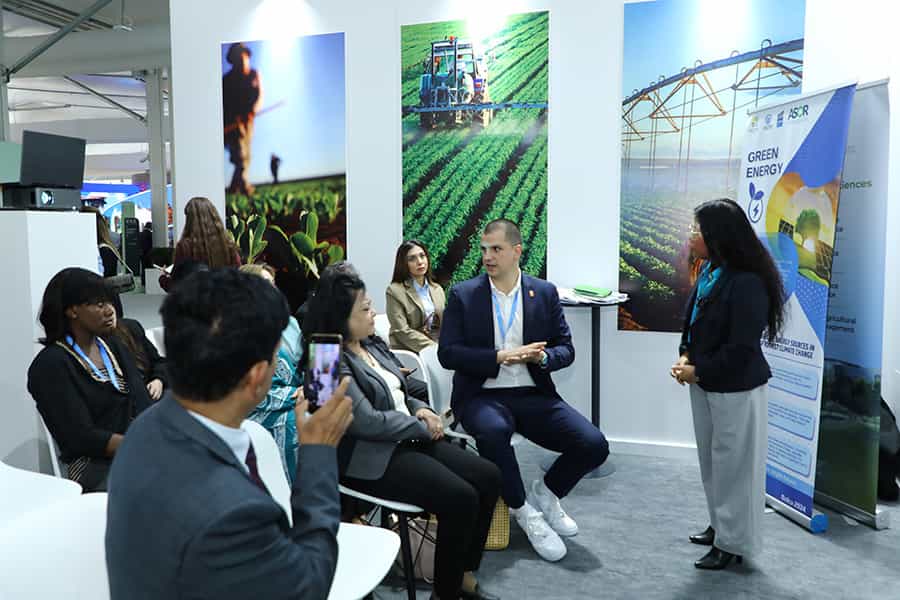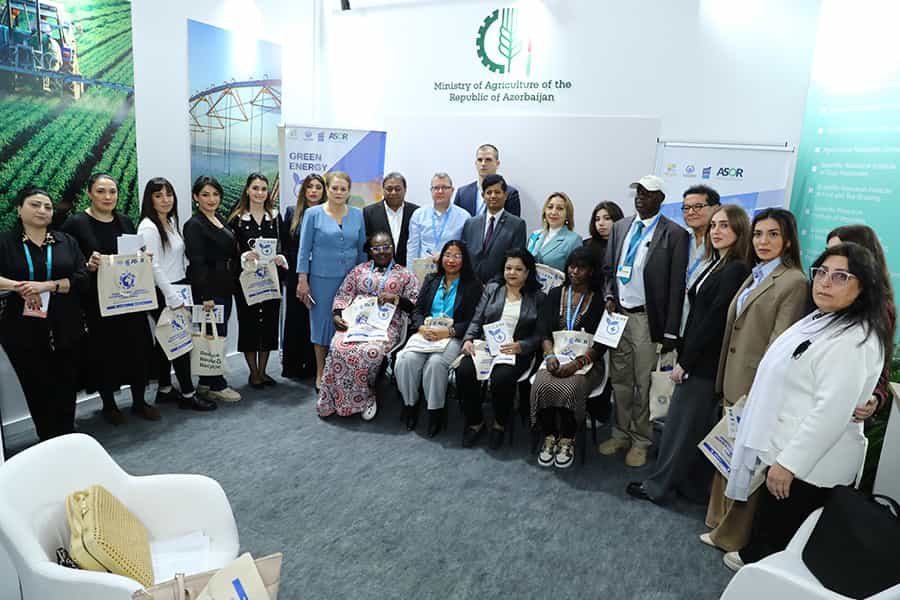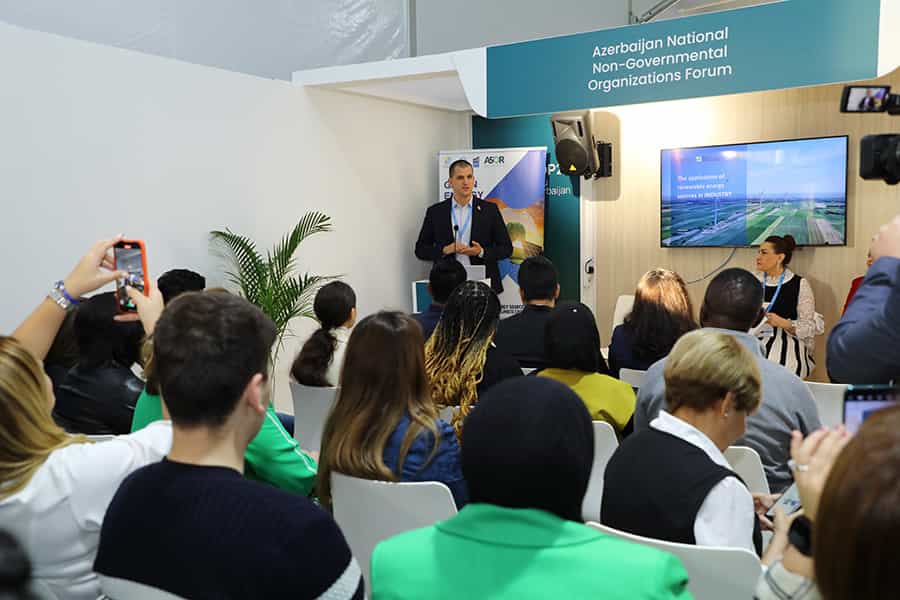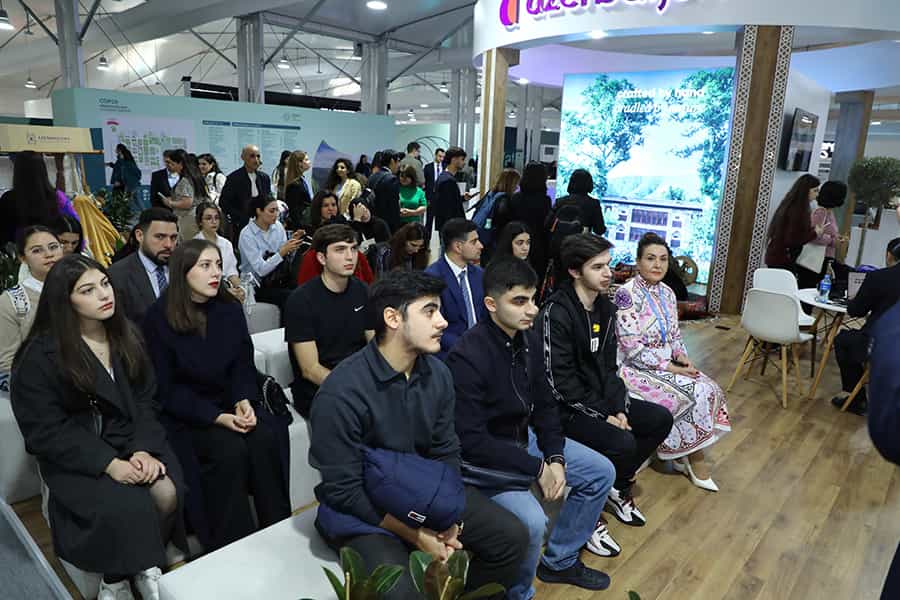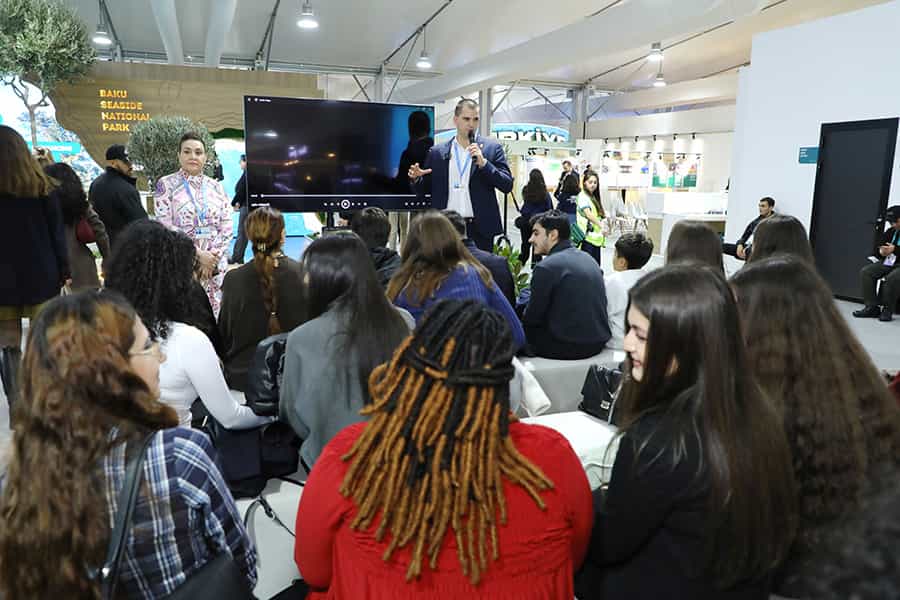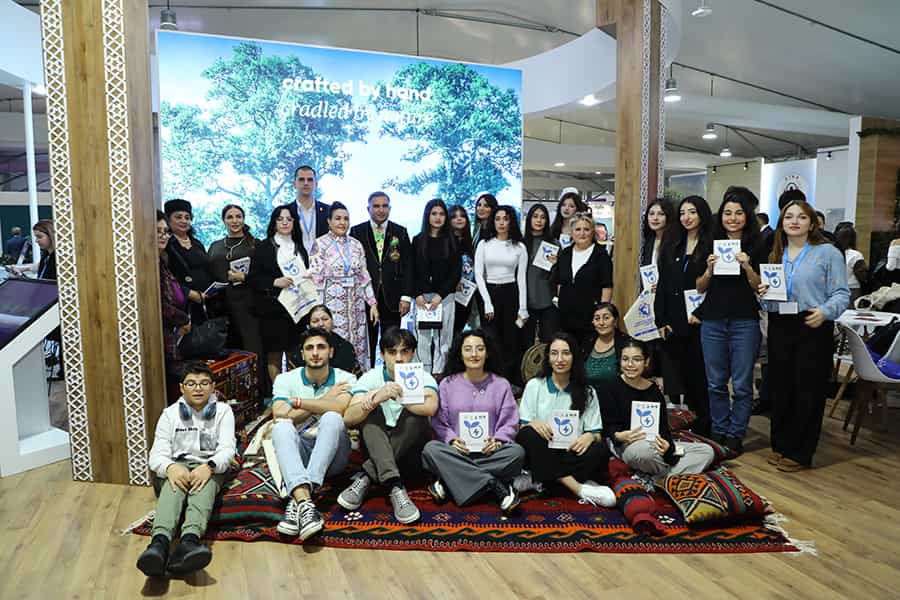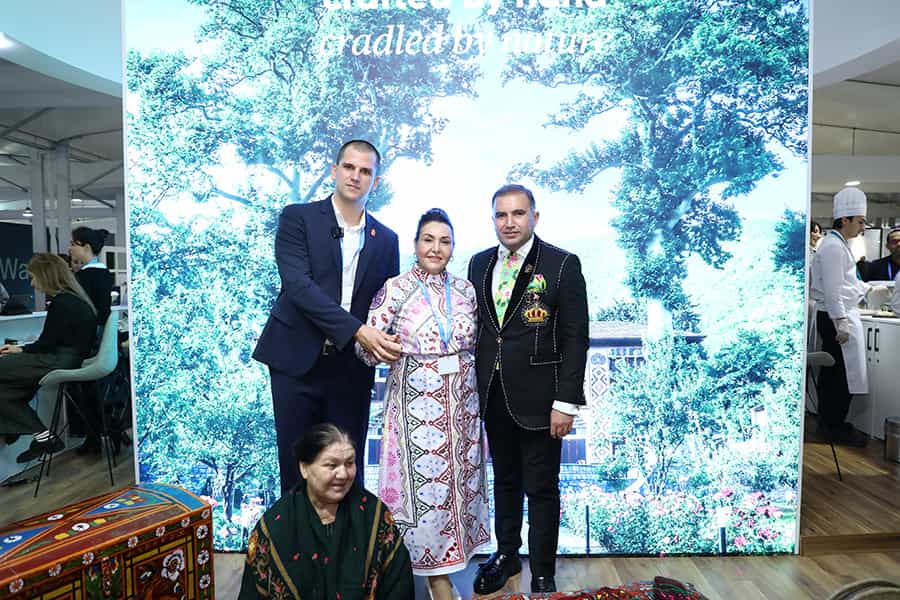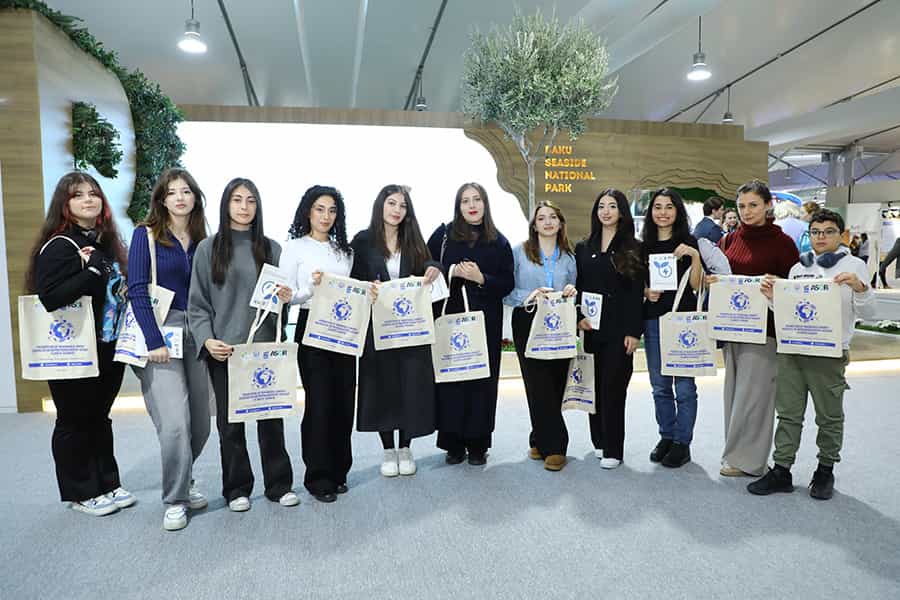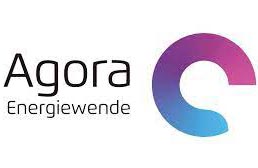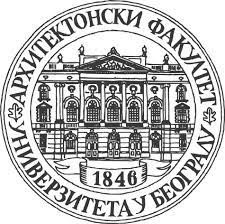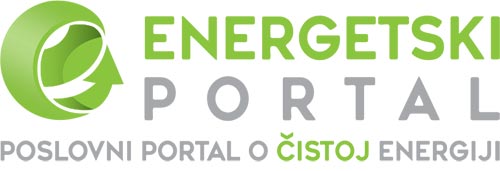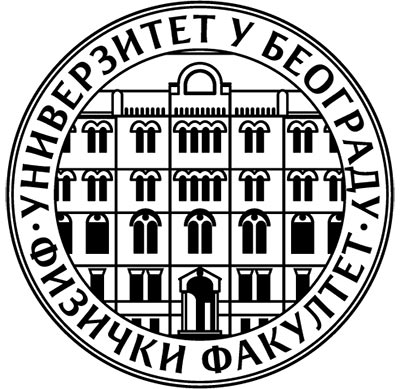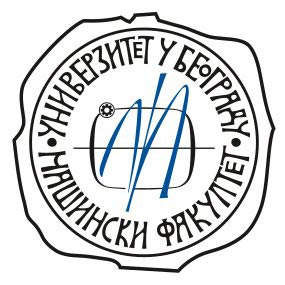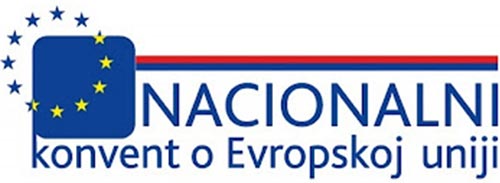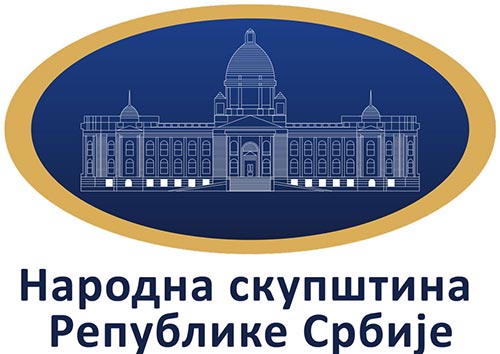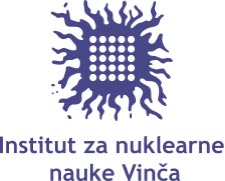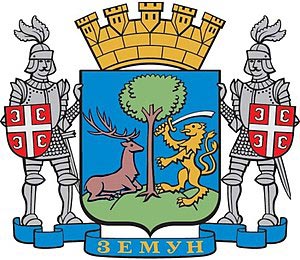At a global event under the United Nations Framework Convention on Climate Change (UNFCCC), which brings together presidents, prime ministers, ministers, experts, and organizations from around the world, ASOR's director, Borivoje Matić, had the privilege of serving as a keynote speaker at three workshops focused on renewable energy.
These workshops, organized in collaboration with the Azerbaijani organization AQSIA and supported by the Ministry of Ecology and Natural Resources of Azerbaijan and the Agency for State Support to NGOs, were held during COP29 in Baku, Azerbaijan. In addition to leading the workshops, Borivoje participated in plenary sessions as a UNFCCC "observer," alongside prominent global leaders in climate action.
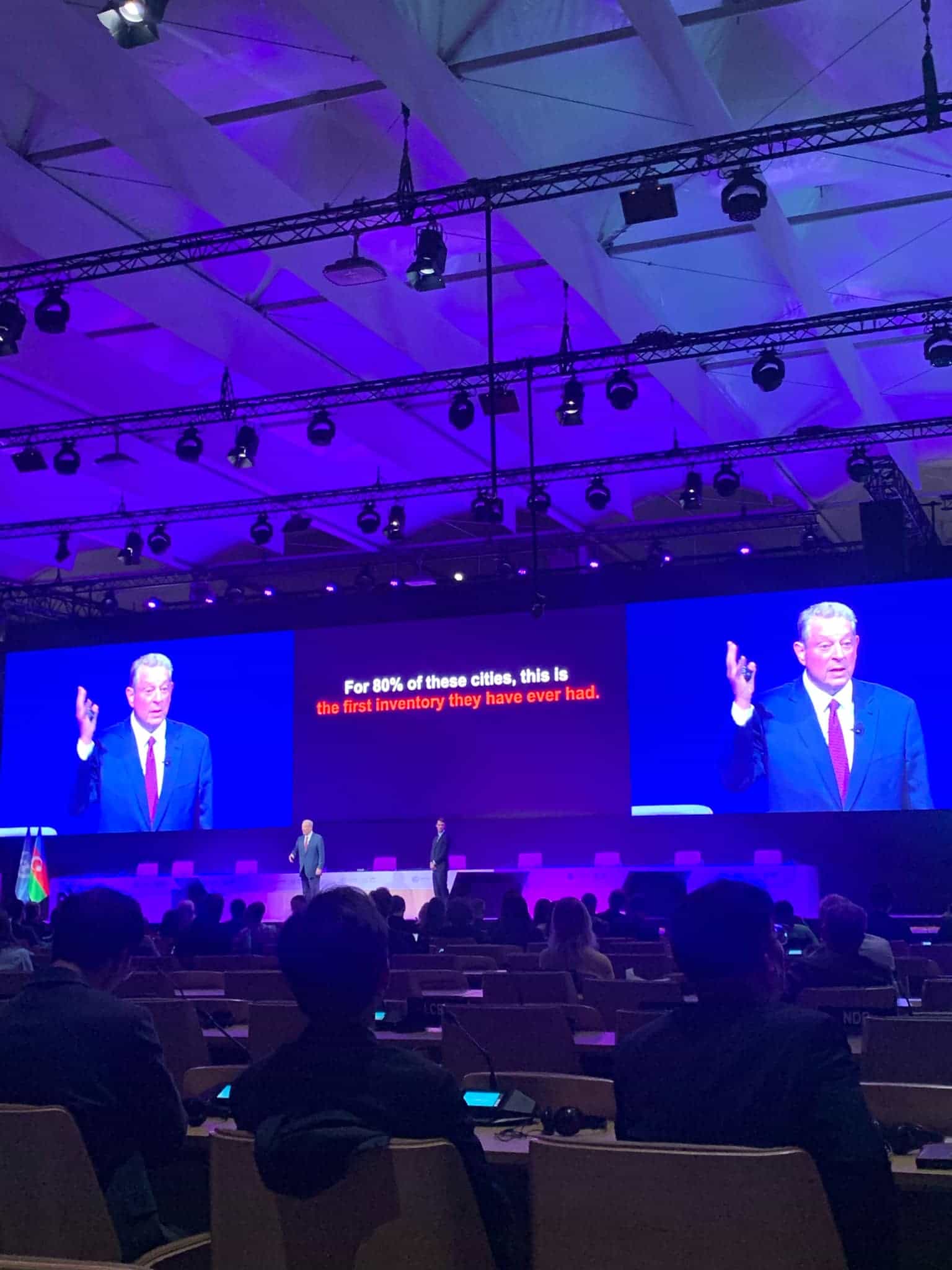
What Are UNFCCC and COP29?
The UN Framework Convention on Climate Change (UNFCCC), adopted in 1992, serves as a cornerstone for international efforts to reduce greenhouse gas emissions and mitigate the effects of climate change. The Conference of the Parties (COP) is UNFCCC’s supreme decision-making body, convening member states to chart global climate strategies.
This year’s COP29, dubbed the “Finance COP,” is taking place in Baku from November 11–22, with a central aim of fostering a global consensus to limit warming to 1.5°C. It emphasizes increasing investments in climate initiatives, particularly for developing countries, and operationalizing the Loss and Damage Fund to assist the most vulnerable communities, including Small Island Developing States (SIDS) and Least Developed Countries (LDCs).
The event, spanning 112,000 square meters, hosts approximately 100,000 participants from 198 member states, covering a diverse agenda that includes climate financing, digitalization, biodiversity, urbanization, agriculture, and gender equality.
ASOR’s Role in COP29 Workshops
In collaboration with AQSIA, ASOR played a key role in developing and implementing the workshops. Designed to foster learning, dialogue, and innovation, the workshops were crafted with a focus on renewable energy education, best practices, and actionable solutions. Participants were provided with comprehensive materials, including videos, guides, and interactive sessions, as well as examples of successful projects across Europe, Asia, and Africa.
Workshop Highlights
1.Renewable Energy in Industry:
This workshop explored practical applications of renewables in industrial processes, featuring contributions from participants from Nigeria, Germany, Azerbaijan, and India. Discussions highlighted the dual benefits of renewable energy: reducing emissions while improving operational efficiency and economic sustainability.
2. Renewable Energy in Agriculture:
Held at Azerbaijan's Ministry of Agriculture pavilion, this session showcased innovative solutions, such as solar-powered irrigation and bioenergy utilization. Practical examples of integrating renewables into agricultural practices demonstrated how they enhance energy efficiency and reduce greenhouse gas emissions.
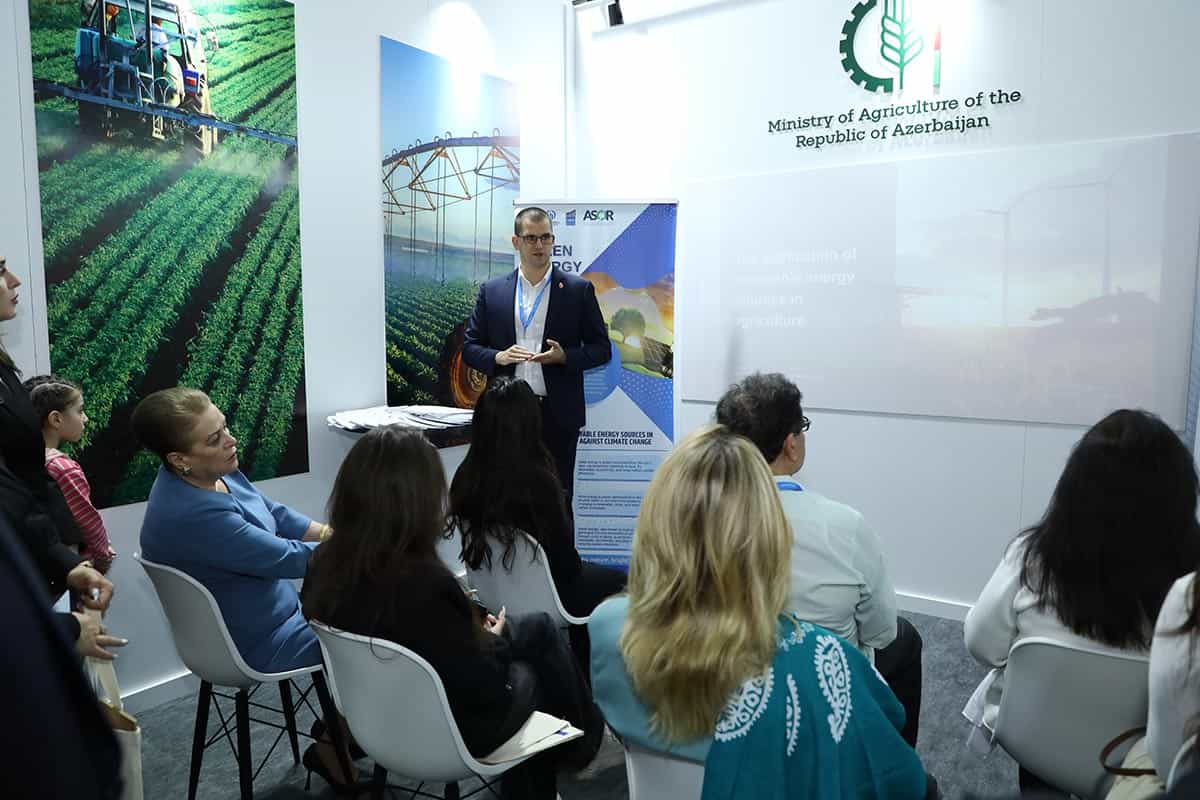
3. Youth Engagement in Green Technologies:
The final workshop emphasized the pivotal role of youth in promoting and implementing sustainable energy solutions. Held at Azerbaijan’s official pavilion, it featured interactive discussions about opportunities for young professionals to gain expertise and engage with renewable energy projects. The session underscored the importance of academic programs, NGO initiatives, and startup opportunities in empowering the next generation of climate leaders.
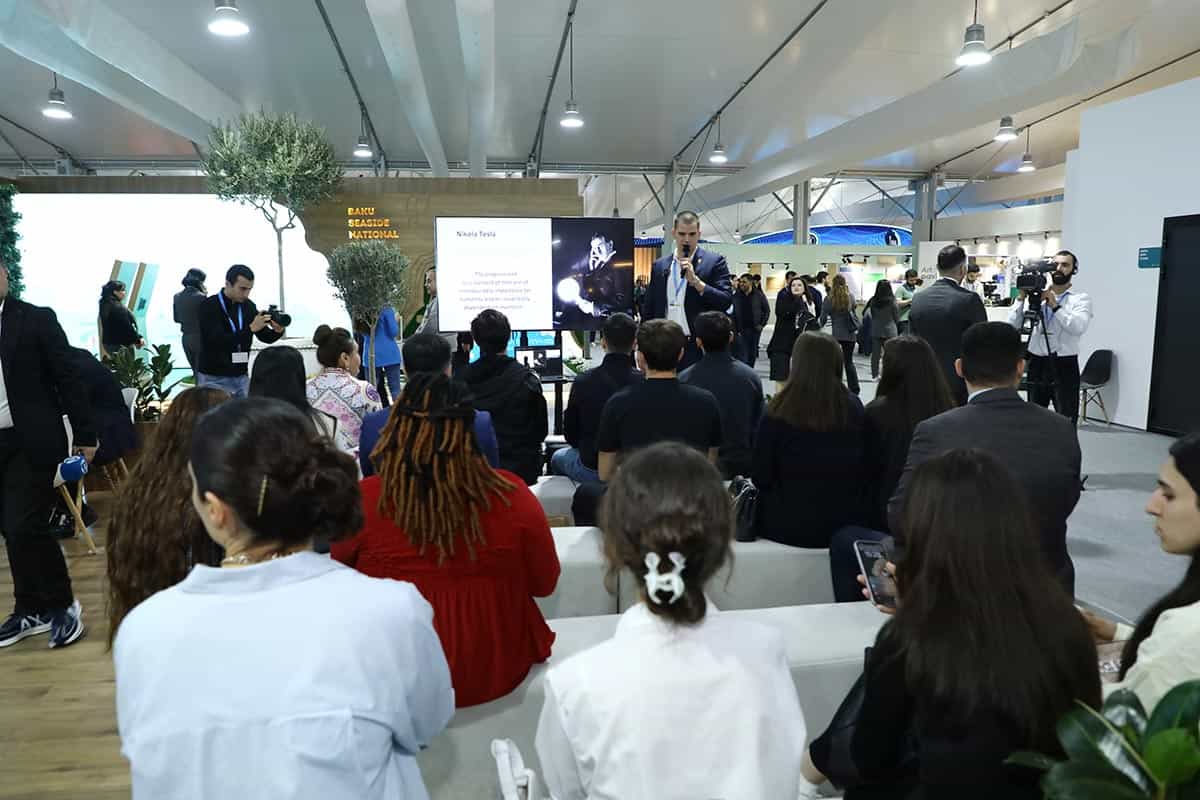
Recognition and Partnership Development
Borivoje Matić, one of the youngest speakers at this prestigious event, received high praise for his contributions, representing Serbia and ASOR on a global stage. The workshops’ dynamic and inclusive approach was particularly valued, fostering open dialogue and inspiring innovative ideas for renewable energy applications.
The event also marked a milestone in ASOR’s international collaborations, culminating in the signing of a Memorandum of Cooperation with AQSIA. This partnership outlines future joint initiatives to promote renewable energy adoption globally.
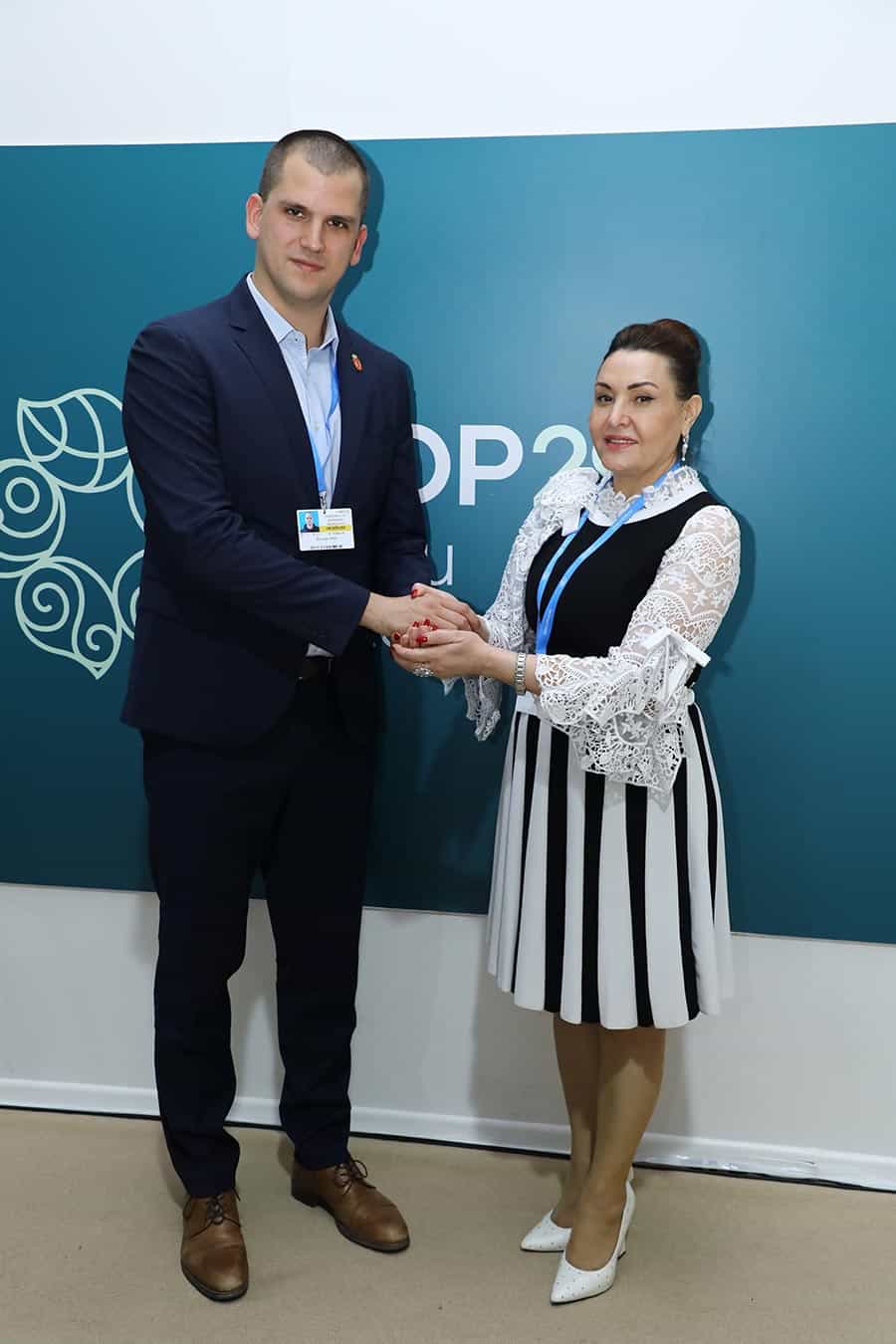
Conclusion
ASOR’s participation at COP29 underscores its commitment to advancing renewable energy solutions and supporting global efforts against climate change. By fostering knowledge exchange, encouraging open dialogue, and forging strategic partnerships, ASOR continues to play a pivotal role in shaping the future of sustainable energy. With a focus on innovation and youth engagement, ASOR remains dedicated to driving meaningful action in the fight for a more sustainable and resilient world.
For more insights, visit ASOR's social media channels on LinkedIn, Twitter, Facebook, and Instagram, or explore the event gallery attached.

